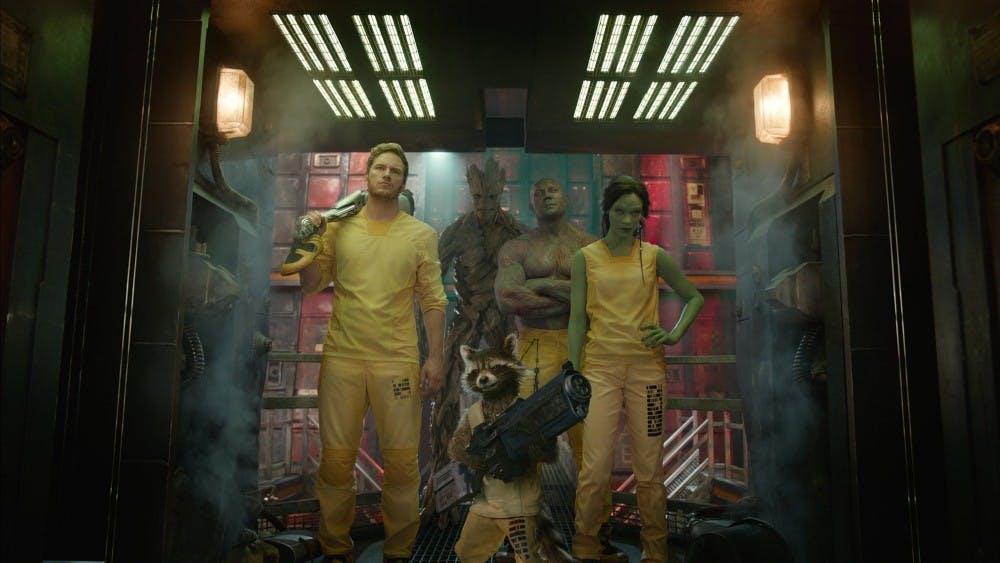This November, I went to the movie theater to watch two of the biggest premieres of the year: "Doctor Strange," the 14th movie of the Marvel movie universe, and "Fantastic Beasts and Where to Find Them," the ninth in the "Harry Potter" franchise. Universe building is the new vogue in Hollywood, and studios are jumping on the bandwagon to build and combine fan bases.
Two sequels to "Fantastic Beasts" were announced before the first movie was released, and there are rumors of another stand-alone Doctor Strange movie with the titular character already set to appear in future Marvel films. James Cameron is planning to make four new "Avatar" films. Next year, Universal intends to release its first movie set in the universe they are developing that would contain and connect the likes of Frankenstein’s monster, Count Dracula, the Wolf-Man, and other classic monsters. DC is currently building a universe, and even a trilogy about "Tetris" is in the works. That’s right, a video game that consists of putting blocks together to clear rows is getting three multi-million dollar budget movies. Hollywood truly seems to believe that literally anything can be a movie, and why not make a sequel or two while you’re at it.
This movement, while great for fans of franchises bloated with yearly content, is stifling the creativity of filmmakers and limits moviegoers' options for film. Big-ticket movies are rarely made without a tie to a universe these days, and innovative storytelling is increasingly being shunted to the realm of ‘indie’ films with low budgets.
We have come to expect certain qualities in upcoming Marvel movies. Witty banter, massive action, set pieces and obligatory set up for the next five years’ worth of movies are commonalities that all of these movies share. Even the out-of-the-box characters of "Guardians of the Galaxy," minuscule scale of "Ant-Man" and crazy visuals of "Doctor Strange" are not enough to break the mold of the Marvel Universe. And for those who like this style, this is akin to a godsend. Two or three times a year, they can return to the buffet and get something that’s well-produced, consistent and familiar to them introducing a new superhero or, even better, cramming all the ones they know onto a screen.
But for those who don’t, this is more like a never-ending nightmare. Movies in a franchise are difficult to separate from one another by design. It needs to feel natural for one character to slip into the movie of another, and centralizing around a tone or basic movie structure is the easiest way to accomplish that. However, that means that each new movie is a little less individual. Universe movies are made by committees, not by artists. They have to fit the brand that has been created and properly slot into its puzzle piece in the world as a whole. That makes it harder for the layperson to jump into any particular movie and enjoy it. Because of the constant set-up-the-next-movie nature, it’s hard to fully appreciate any particular film if you have not seen all of the movies that preceded it.
Movie sequels are not a new phenomenon. Movies have always had extensions of a story beyond an original idea, but the movie universe is a fundamentally different idea. The narrative tying movies together in a universe is so vast that it kills any stakes. If it’s known that 10 movies in the franchise are already planned, including one named after the character we are currently watching, how much choice does anyone involved actually have? Writers, directors and actors all have to bend their vision and creativity to the will of the franchise for good or ill. There can be no spontaneity. The narrative has been set and it must be obeyed. This is the new normal in Hollywood.
Fans have happily stepped onto the movie conveyor belt with no end in sight. We rave at the new trailers when they come out. We discuss casting decisions before the film is released. Then we go to the theater and enjoy the movie and laugh at all the right moments. But when we leave the theater, we struggle to find much of substance to speak about the next day. “It’s good” is the usual response when prompted, followed by “I liked her” or “I didn’t like him.” Most of the time I find myself saying, “it’s a Marvel movie,” or, “it’s a DC movie.” The conversation about that movie promptly ends and moves to what it means to the universe as a whole.
Whether it’s Marvel, Harry Potter, Star Wars or even Pokémon, the future of Hollywood is set. To all moviegoers, I suggest finding a franchise to latch onto. If not, you face being left behind by Hollywood and a long, lonely future without any new movies.

